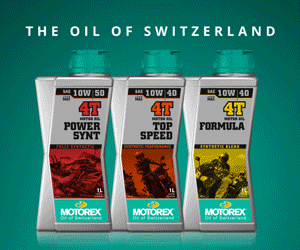2017 Yamaha FJR1300 Review – Buttery smooth villainy
By Boris Mihailovic, Images by Boris, Yamaha Motors
Do you do a lot of big miles? Do you do them with a pillion? And when you do these big miles do you occasionally feel the red mist of battle descend over your eyes, kick it down a gear, haul open that throttle, and set forth to do battle with sportbikes? It’s OK. You can admit to that. We’re all friends here.
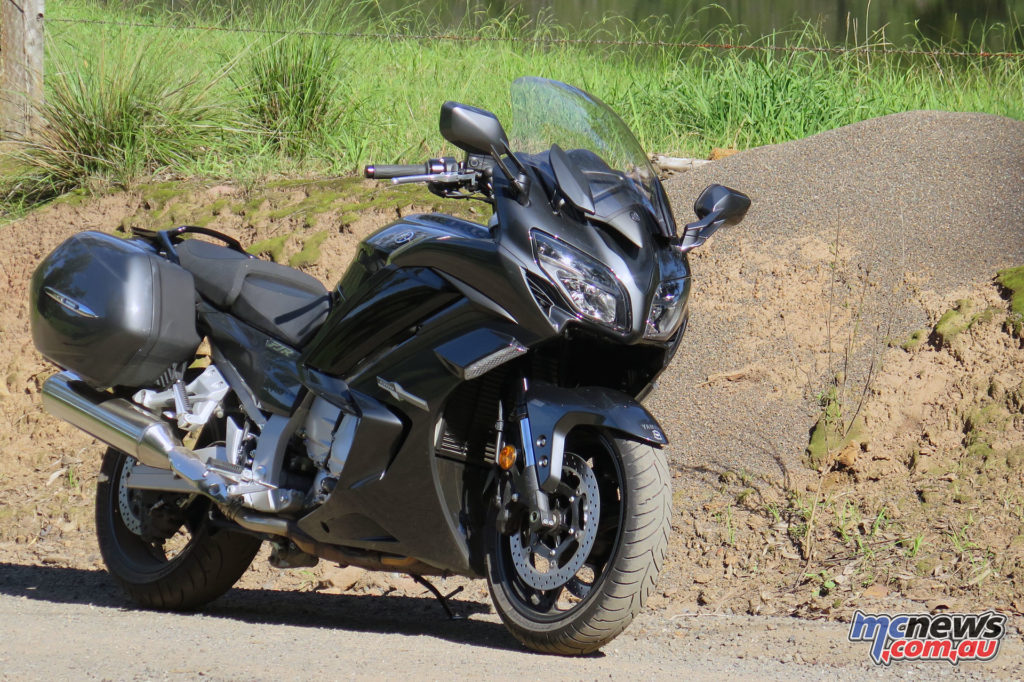
So that being the case, I guess you might be interested in the sports tourer category, huh? The “sports tourer” category is a wondrous grab-bag of assorted weaponry. The Hayabusa is classified as a sports tourer. The MV Agusta Lusso is also classified as a sports tourer. But I guess it is Yamaha’s glass-smooth mile-eater that truly personifies the category.
To my mind, a sports tourer worthy of the name needs to do all things well, and a few things brilliantly. Those brilliant things, in no particular order because they are all equally important, are heaps of grunt. Tonnes of it, and all of it delivered in a smooth, non-stressful way.
Crazy comfort for the rider and the pillion. That includes heated handlebar grips, superior wind and weather protection, and seats you don’t mind spending hours on. Add good range – if you’re not getting 300-plus out of a tank while sitting on 120-140 all day, you’re not in the game.
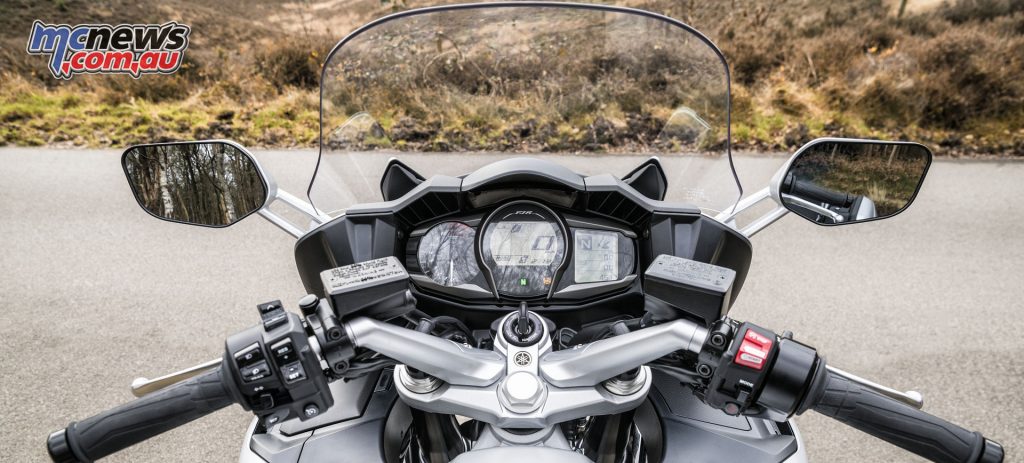
Hard luggage. It has to be. It just has to be. And finally, handling integrity because it has to go around corners like it knows what it’s doing. If you didn’t care about that, you’d be buying a cruiser, not a sports tourer.
And year after year, Yamaha’s FJR pulls out a big black Texta and ticks those ‘brilliant’ boxes with sublime conviction. This year, the Texta is being used with even more conviction…
Heaps of grunt? I’m thinking 145 horses and 138Nm qualifies. Comfort? All day trans-continental comfort, ladies and gentlemen. The FJR has one of the greatest motorcycle seats ever made. It feels like you’re sitting on a wide (and width is important for comfort), luxuriously-padded barrel that stops just short of fondling your glutes in an unseemly manner. The pillion also gets a broad and nicely-cushioned but supportive seat.
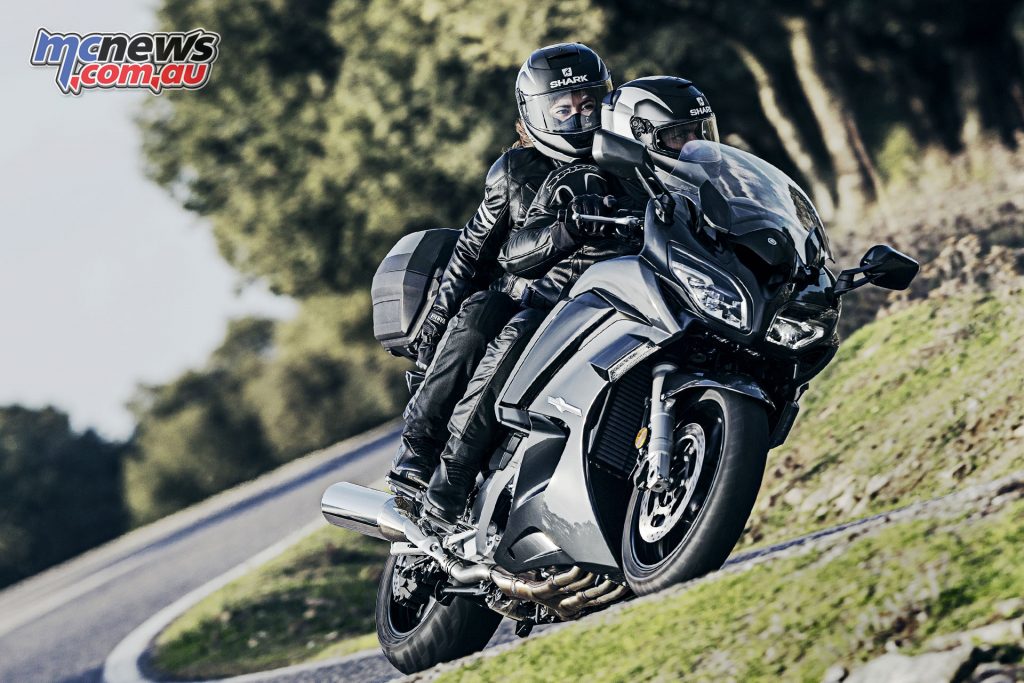
Experience has shown this leaves the pillions favourably disposed towards you, the rider, and many good and great things flow from there. Having toured extensively with my good lady wife on a rigid Shovelhead as well as various cruel sportsbikes, I can put my hand on my heart and state the FJR’s pillion comfort left her far more incentivised to… um, swing from the chandeliers at the end of the day.
Range? Twenty-five litres is an elegant sufficiency. If you want to do distance efficiently, stopping for fuel every 200 klicks kinda defeats the purpose. The FJR is good for 320-340 if you’re being well-mannered and enjoying the sights. You’ll still get 300 if you decide you need to be somewhere in a hurry.
The heated grips come with three settings plus off (obviously), the electronic screen now travels up and down twice as fast as it used to, and it is one of the most effective wind-stoppers I’ve ever used. In the fully lowered position it feeds air to your face, but raise it all the way and it’s like sitting in a cocoon of placid quiet. The wind-noise drops markedly as does the wind-blast.
The whole fairing arrangement is so good, it even keeps much of the rain off you if you’re doing more than 80km/h. In fact, the riders behind you can also benefit from this by slip-streaming you and taking advantage of your fairing.
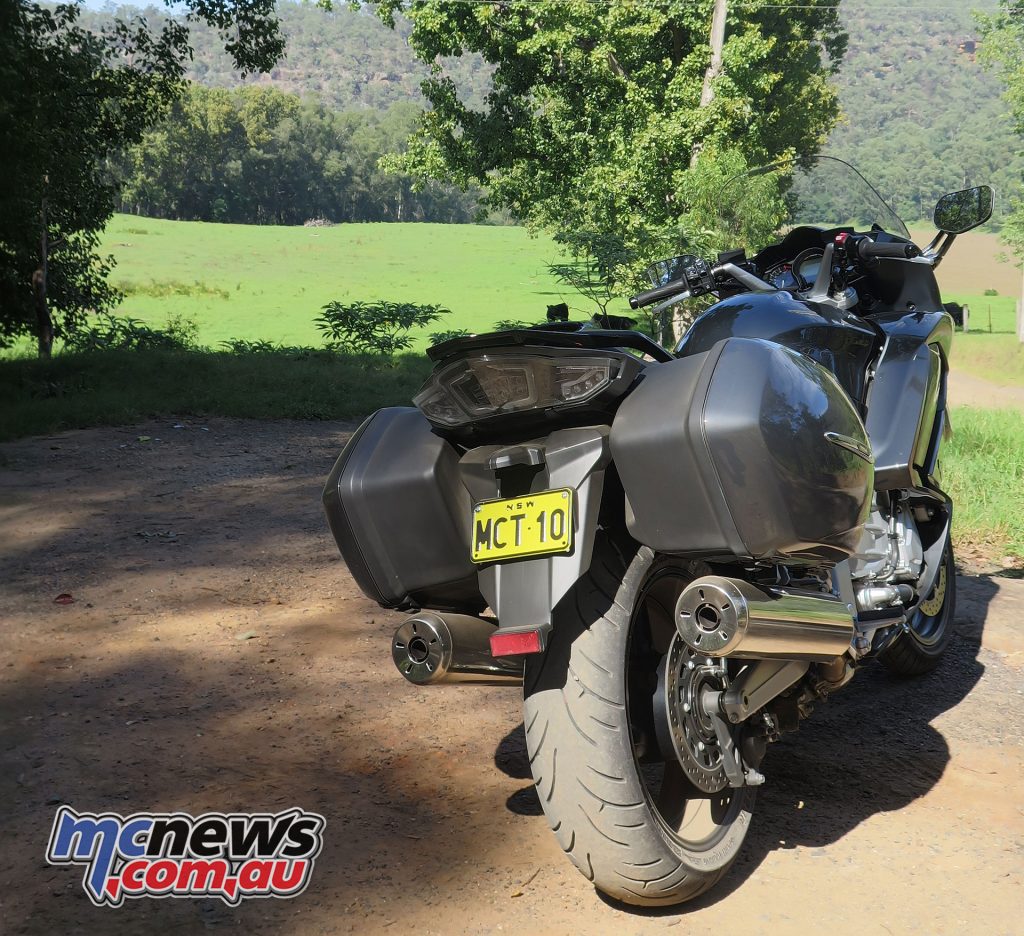
Hard luggage in the form of subframe-fitted, quick-release panniers matched to your ignition key just rock. Yes, you can fit a top-box, but that’s like wearing tracksuit pants when you’re going out. It shows you’ve surrendered all your dignity. Retain and express your manliness by strapping stuff to the rack on the back of the FJR.
It’s not quite like hunting sabretooth, but it shows her you know how to strap gear to a bike, which means you are an Alpha male and thus appropriate for mating with. It also gives Her Ladyship something soft to lean upon when she tires of pressing herself seductively against you.
So there’s that. Thoughtfully, the FJR’s panniers are still narrow enough to allow rapid lane-splitting in heavy traffic. Ask any police officer.
Oh, and you also get a glove compartment in the fairing where you can put useful items like hankies, pens, sunnies, and throw-away spark plugs. There’s also a 12V-outlet in there so you can also charge your electronic stuff.
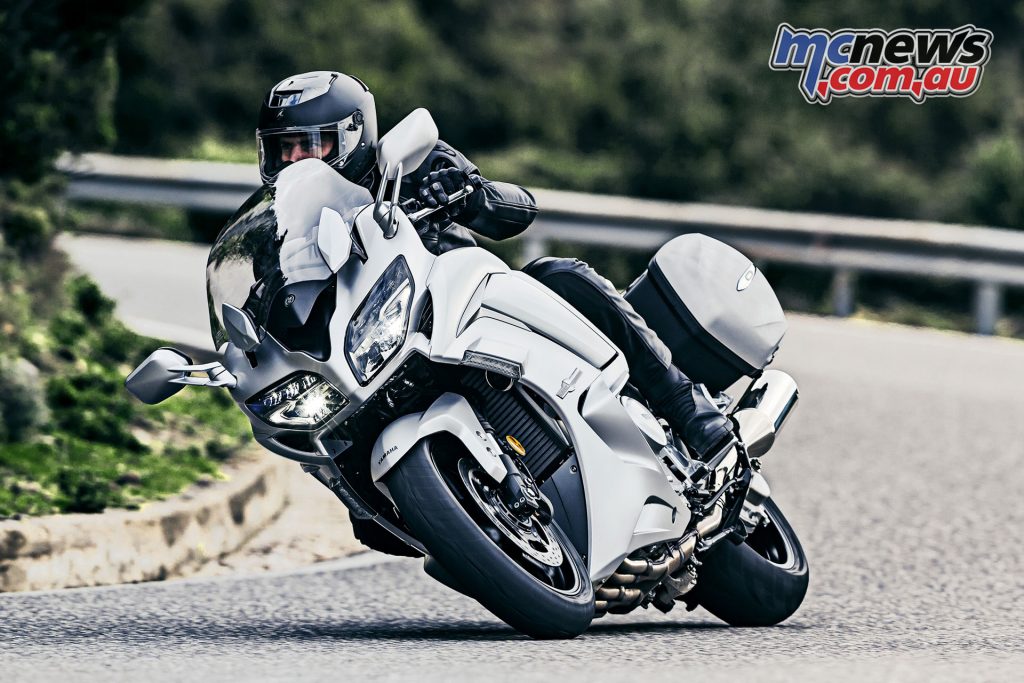
And so to the handling. Yeah. Just yeah. FJR’s have always been wonderfully competent in the tight stuff and breath-taking in fast sweepers. She’s a big girl and when she’s wet she weighs 288kg, but she carries that heft with sublime indifference. You can ask the cops about that, too. Or you can let them chase you on your sportsbike for a bit and see how that ends up.
But wait, there’s more.
This year the FJR gets six gears. Six helically-cut gears for quiet, butter-smooth running. Did it need the extra gear? Probably not. Is it good it now has it? Absolutely. The first five are well-spaced for rapid transit, and sixth is a tall cog that works beautifully well as an overdive, while still letting you overtake things with aplomb.
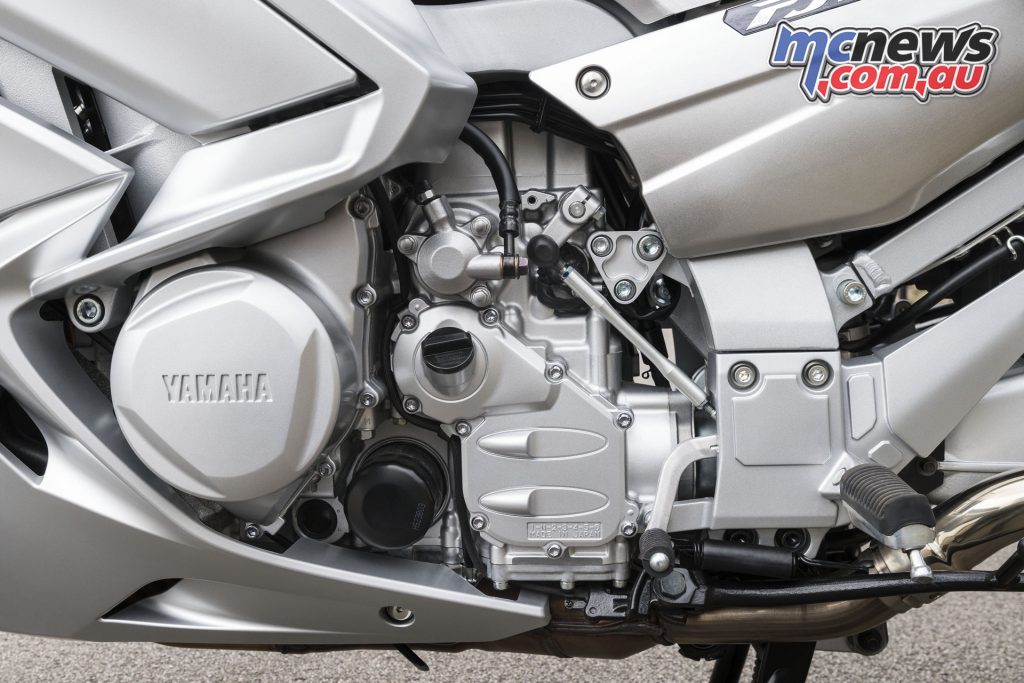
You also score an assist-and-slipper clutch arrangement this year. So not only does this prevent terrible things happening during spirited downshifts if you’re in a hurry to find your girl a suitable toilet stop, the downshifts are smoother and you don’t have to pull on the clutch-lever as hard thanks to the lighter clutch springs being used. Yamaha state it’s 20 per cent less effort. I have no way of measuring that, but it is certainly a light clutch.
The FJR runs a fly-by-wire throttle, which is one of the best, as is its electronic suspension. Few manufacturers get these two crucial electronic aids right. Yamaha is one of them.
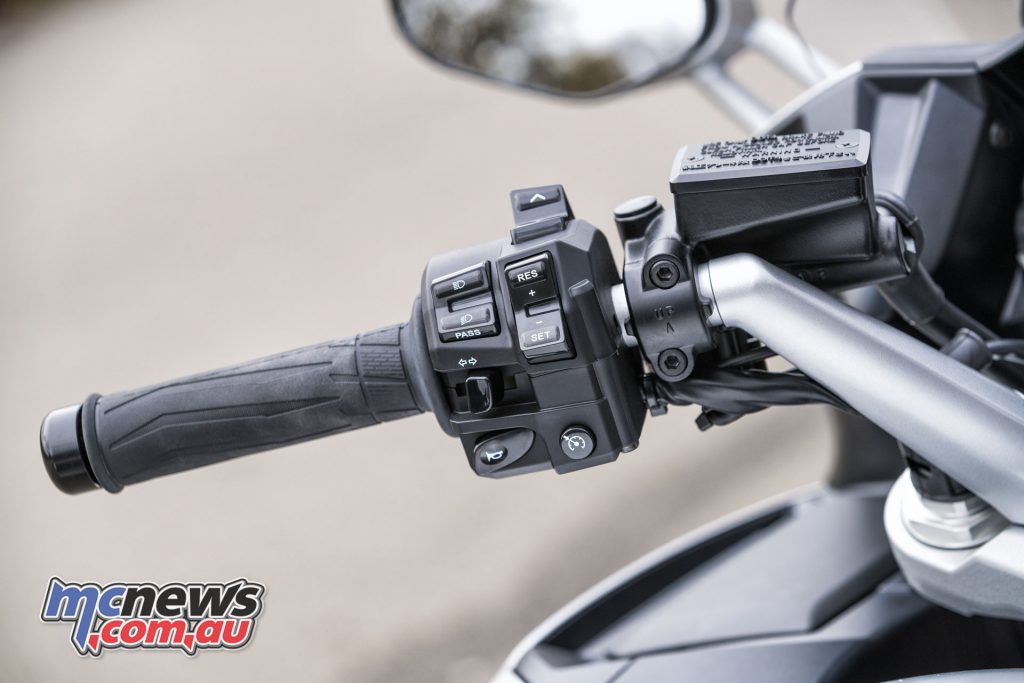
You have two riding modes – Touring and Sport. Pick one. I liked Sport and pretty much left it there all the time. Then set your suspension up for solo, two-up, or fully loaded with all her make-ups and hair-dryers. Simple, easy-to-use menus is something else Yamaha does almost better than everyone. And I very much like that.
Don’t give me too much choice. It only confuses me. And don’t make me scroll through six sub-menus to find what I wan,t like it’s something middle-aged men enjoy doing. This is a bike not aimed at the electronically-aware, iPhone-ruled youth. Which is great.
Yes, of course there is Traction Control and Cruise Control. You needed to ask that?
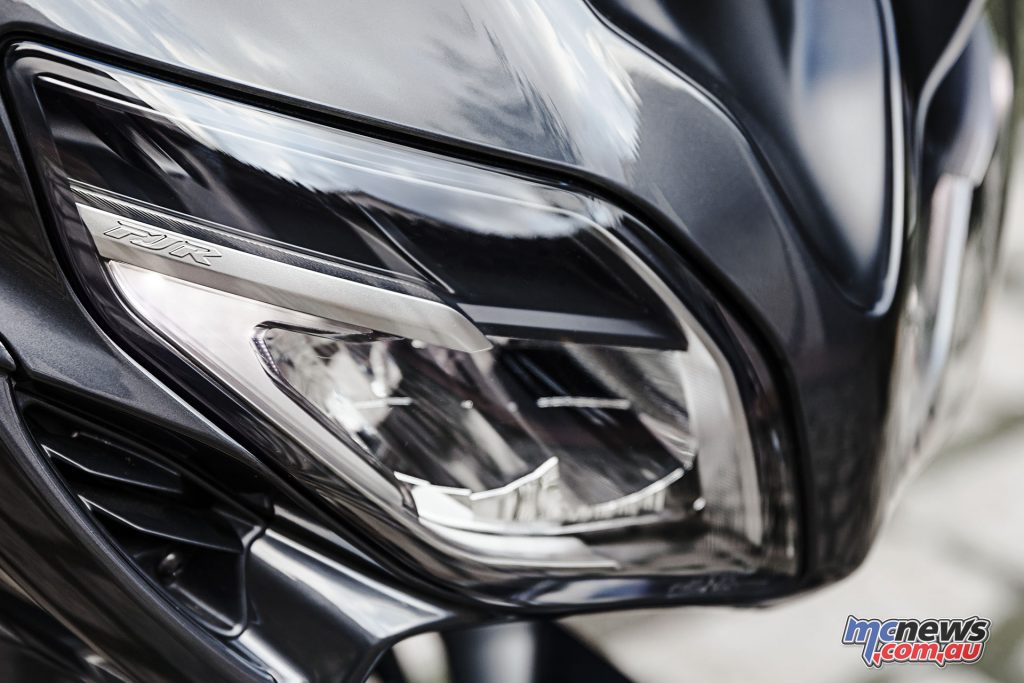
Now then, since I ride my test bikes at night, you’ll be pleased to know the headlights are very good – with a wide spread and serious throw. As they should be in this segment of the market. And this year, Yamaha has introduced lean-sensitive LED lights that will illuminate those nasty night-time blind spots in corners. This is the first bike Yamaha has fitted this technology to, and I sure hope it isn’t the last.
The finish is, of course, top-notch. Yamaha quality is evident in every panel, its shaft-drive is bulletproof and you could leave the FJR to your kids in your will and they will not curse you for it.
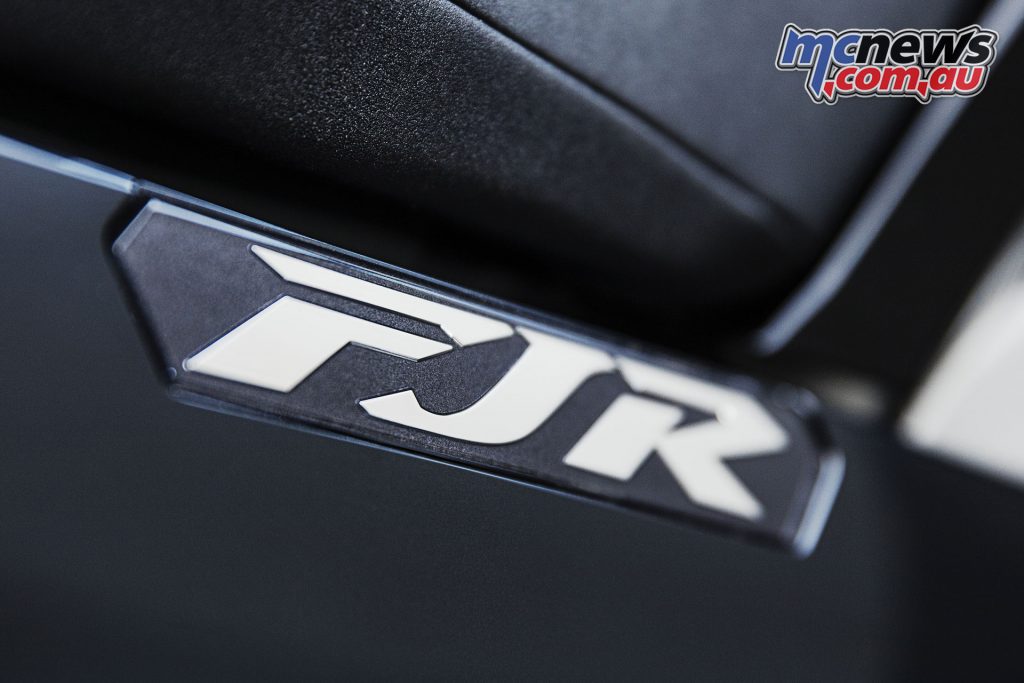
There’s a timelessness to the design, and while it looks much better and more purposeful this year, it still retains a refinement very much desired in this market segment. It is most certainly a grand tourer in every sense of the word, but it also has a bit of mongrel to it, and that is very appealing to the mongrel in me.
I spent a very happy month on the FJR. I didn’t do any major miles, but each weekend was a 600-700km exploration in glorious autumn weather.
I also commuted on it every day, and when I reluctantly handed it back, I was seriously wondering if I was approaching a time in my life when an FJR might be something to live with. After all, you can stick an Akro pipe on it ($1940), save nearly five kgs in weight, get a few more horsies and almost five more Newtons out of the package, and enjoy a nice howl when you’re being enthusiastic.
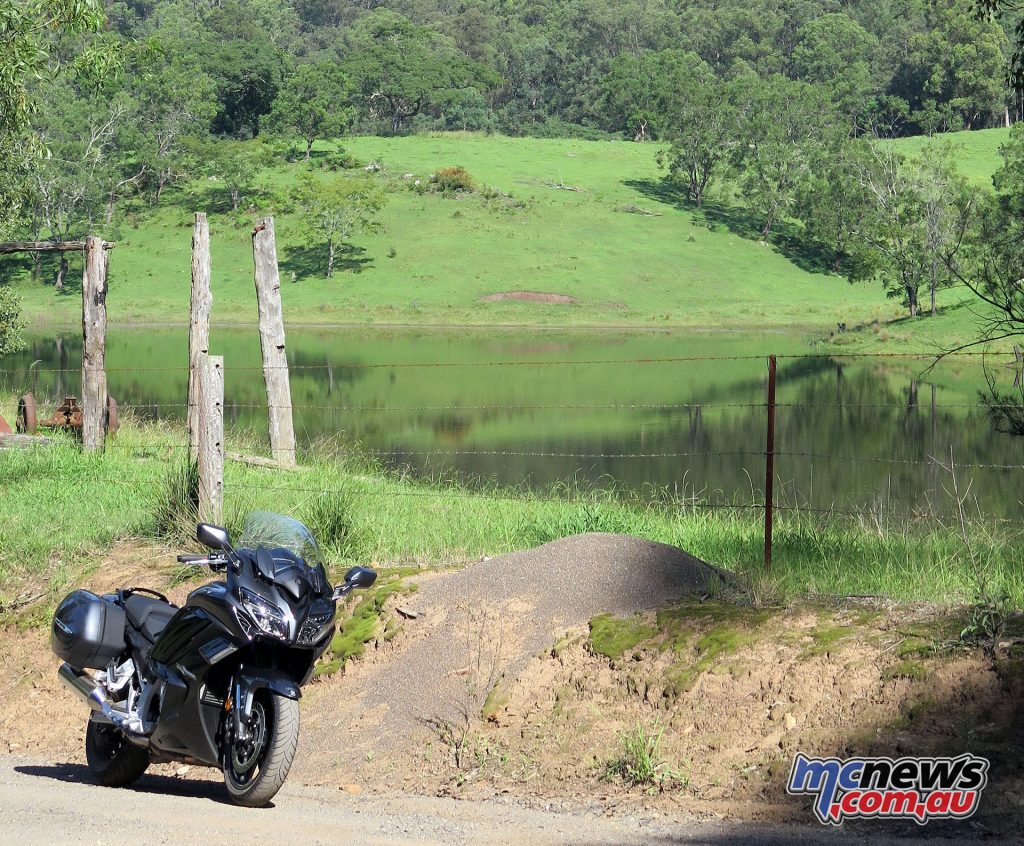
I need to think on this some. Like maybe over the next decade or so. As I said at the beginning of this piece, a sports tourer worthy of the name must excel in a few key areas…
It has to go like a missile, but it must achieve that ‘go’ with dignity, sophistication and aplomb. After all, the people buying FJRs (essentially the cops and men past their first blush of youth) expect their oomph to be delivered without the sturm und drang normally associated with getting hard on the gas.
Twist the FJRs throttle and you’re seamlessly accelerated into the triple figures. The high ones. The exciting ones. The ones the state frowns upon. Yet at the same time, it’s all happening with such good manners, it’s almost like there’s not much going on at all.
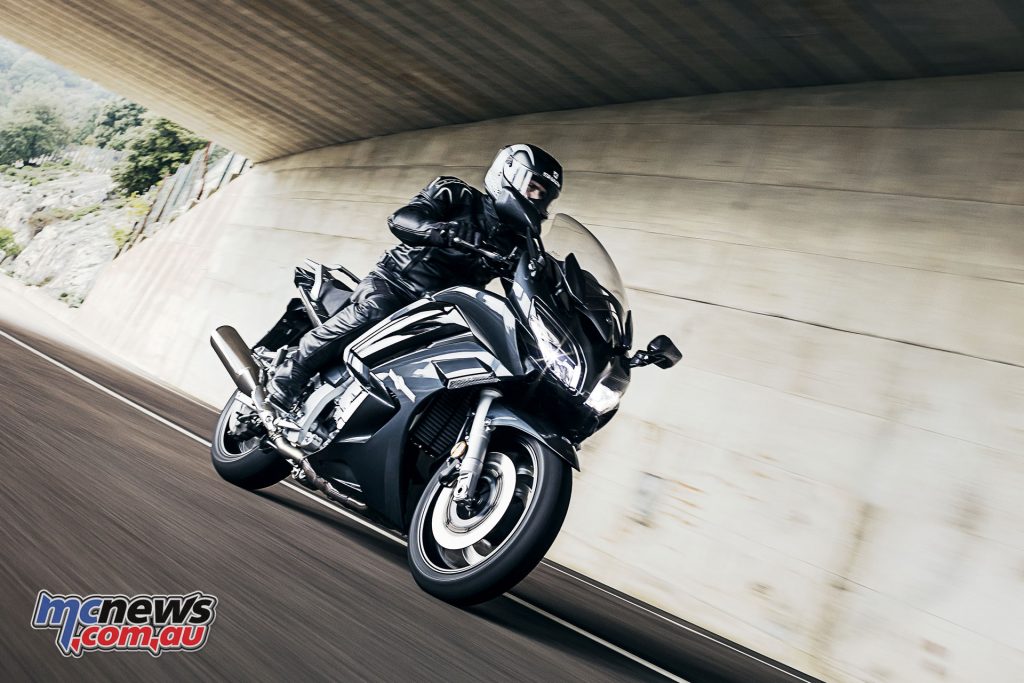
Hard-cornering is the same fuss-free paradigm. It’s only when you glance down at your speedo you realise there’s really quite a lot going on, and all of it is pretty bloody good. And I like that. Very much.
More information on the 2017 FJR1300AE (it only comes in grey for $27,999 including GST) and its less-specced-up-in-the-suspension brother, the FJR1300E (which only come in black) is available from the Yamaha Motor Australia website (link).
I didn’t manage to get a lot of pictures of my riding prowess on the FJR. The brilliant snappers I usually torment into taking shots were not available, so I did a few happy snaps myself and grabbed some others off Yamaha. Basically I just rode and rode and rode the thing. I don’t make any apologies for that.
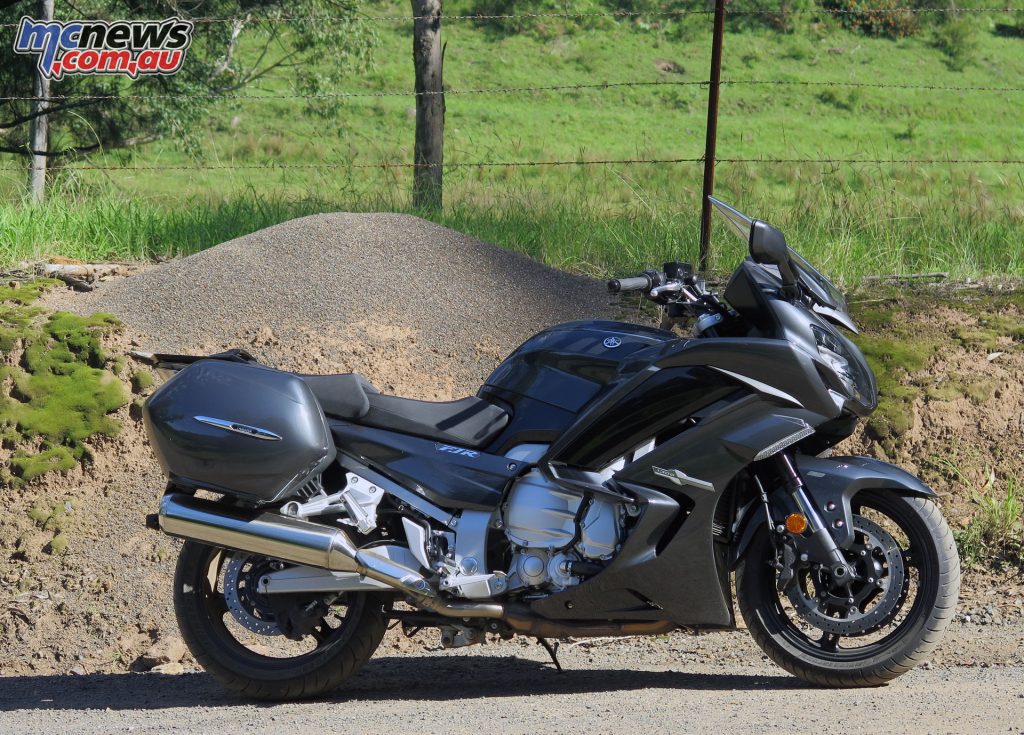
2017 Yamaha FJR1300AE Specifications
- Engine – Liquid-cooled, 4-stroke, DOHC, forward-inclined parallel 4-cylinder, 4-valve
- Displacement – 1298 cc
- Bore x Stroke – 79.0 mm x 66.2 mm mm
- Compression Ratio – 10.8 : 1
- Lubrication System – Wet sump
- Fuel Management – Fuel Injection
- Ignition – TCI
- Starter System – Electric
- Fuel Tank Capacity – 25 L
- Final Transmission – Shaft
- Transmission – Constant Mesh, 6-speed
- Frame – Aluminium, Diamond Shaped
- Suspension Front – Upside-down telescopic forks, 135mm travel
- Suspension Rear – Linked monoshock with spring preload adjustment, 125mm travel
- Brakes Front – Hydraulic dual disc, 320 mm
- Brakes Rear – Hydraulic single disc, 282 mm
- Tyres – 120/70 ZR17M/C (58W), 180/55 ZR17M/C (73W)
- Dimensions
- Length – 2230 mm
- Width – 750 mm
- Height – 1325 / 1455 mm
- Seat Height – 805 mm
- Wheelbase – 1545 mm
- Ground Clearance – 125 mm
- Dry Weight – 272 kg
- Wet Weight – 292 kg with 25 litres of fuel

















